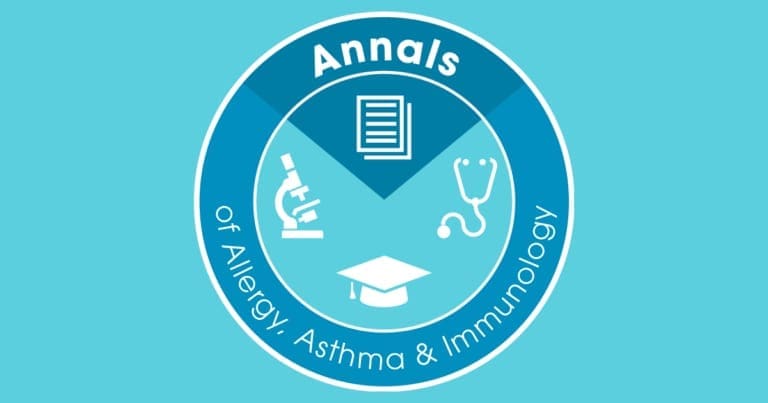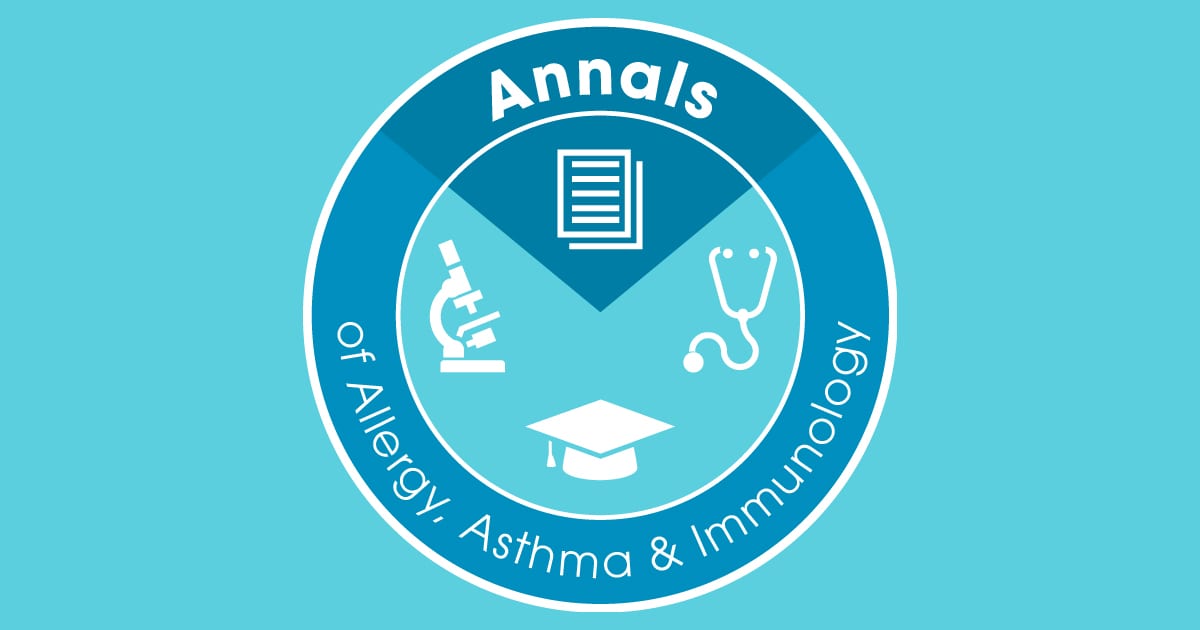As the blazing sun bears down and summer slowly draws to a close, it is time to sit down with an ice-cold beverage and pick up this month’s Annals of Allergy, Asthma & Immunology for a refreshing update on the use of biologics in atopic diseases. Written by experts in the field, the reviews and perspectives in this issue will give you new insights into the current use of biologics in asthma, a look into the proverbial “crystal ball” for the future of biologics in asthma care, and an overview of the many clinical trials of biologics for chronic rhinosinusitis and nasal polyposis.
An interesting perspective article notices that longitudinal cohort studies have been used to great success in understanding various allergic diseases and asthma. However, food allergy has not been well studied in such an epidemiological way. I encourage you to read this perspective and consider the importance of including food allergy in future cohorts.
Our CME Review this month focuses on atopic dermatitis. An expert in the field addresses the many facets of this disease – from the effect it has on quality of life to nonpharmacologic interventions and the most recent therapeutics (JAK inhibitors) – this review covers it all. And, sticking with the overall theme of this month’s journal, the authors devote a significant portion of the review to the use of biologics in atopic dermatitis.
This month also includes exciting original research focused on many aspects of clinical allergy and immunology care. As the SARS-CoV-2 pandemic continues, we have articles that explore allergic reactions (or the lack thereof) to COVID vaccines, as well as a study predicting the likelihood of seroconversion after vaccination. Another study explores the effect of COVID-19 on pediatric asthma hospitalizations, while another looks at the effect of COVID-19 on the anxiety of parents of food allergic children. Other “must reads” include several studies looking at development of asthma and other atopic diseases and the relationship to maternal obesity, gestational weight gain, labor duration, mode of delivery, and length of breastfeeding. These studies provide an interesting picture of the risks of the pre- and postnatal period and development of many atopic diseases.
As in every issue, this month’s Annals has a Marginal Zone comic to lighten up your day. Fitting the theme of this issue, this month is an interactive feature that will help you determine what name your monoclonal antibody would have. My antibody is named Nocturnafiramermamab (yes, really!). What is yours?
These are only some of the outstanding manuscripts included in the August issue of Annals. So, while you enjoy that ice-cold beverage, be sure to read this issue — it is packed full of information that will increase your knowledge and improve the care you provide to your patients. And, as always, if you have any comments, please consider sending a correspondence via email to Annals. I am always excited to hear how Annals has helped you improve the lives of your patients.


